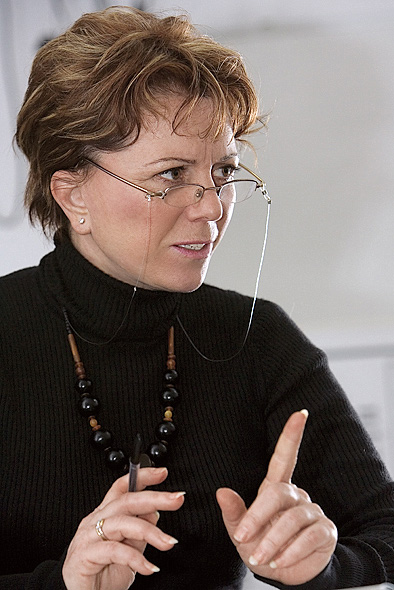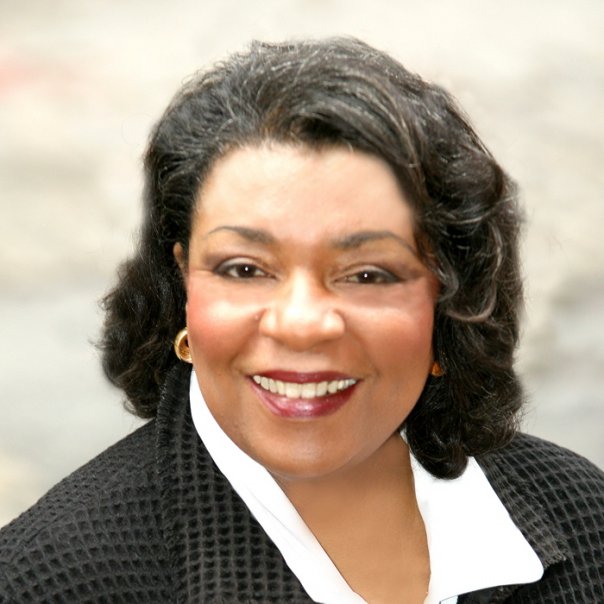 Tango: How did you go from being a simple participant in a course to what you are today, the leader of that kind of education in the whole country?
Tango: How did you go from being a simple participant in a course to what you are today, the leader of that kind of education in the whole country?
C.L.: When I took part in the course for the first time it was extraordinary, I saw that beyond the fulfilment of those dreams there had been an unseen dream hidden from me since I was seven years old. That dream was about a contribution for mankind. I was very interested in doing something great such as our planet to be clean, for people to be fulfilled and happy, to think for themselves, to be masters of their life, not to keep polluting our planet and leaving children a disastrous inheritance.
Tango: But aren’t these dreams too large?
C.L.: I think that only large dreams can really inspire people. I think that all people hope for more than their own personality. If I am sincere with myself, I can see that what makes a difference is to have something that inspires me, something that is worth it, that I can be proud of because I made a contribution. When you find something like that and you act as though your life depends upon it, it is something, it’s a game where you can express who you are. And I found that thing in 1983 when I choose that my life should be about making this education available to all the people of our planet. From childhood I was always inspired by people like Ghandi or Nelson Mandela. In his inauguration speech, Nelson Mandela said: ‘Our deepest fear is not that we are too small. Our fear is that we are powerful beyond any imagination. It’s our brilliance, not our obscurity, that scares us. We ask ourselves, who am I to be brilliant, wonderful, talented, and extraordinary? In fact, who are you not to be these things?
Tango: How can people who usually don’t have the guts to get involved in great projects get something like that?
C.L.: For most people, after they have made all the money they want and have solved their personal problems, the only thing that remains for them is to make a contribution. And the larger it is, the more it attracts them.
Tango: By that you mean to be generous to people around you or to be noble?
C.L.: To do something that has an impact upon the quality of other peoples’ lives. When I took the course for the first time, I realised that if I want to have a valuable life I must give it for the use of humankind, to make a contribution. I realised that this education is extraordinary and it can be for everyone if we want it to be. Then I resolved that I want to make it available for the people of my country, for those who want to have it. I realised that I did not have the right to keep it for myself alone, because what I have got from it is to be alive, strong, with moments of inspiration (of course, with ups and downs, like all the rest of us), but with strength and inspiration that makes life worth living. After I finished this course I saw that on the day I die, I want ‘I burned completely’ written on my tombstone, I put everything into the game and lived intensely, I left nothing unlived and no apologies.
Tango: But most people don’t have a purpose in life anymore, they only want to make it to the next month when the pay arrives.
C.L.: I understand that. It’s like a trap. Every human been is touched by something that inspires him, but the next problems take this out of sight. It doesn’t matter how much money you have, it doesn’t matter what you do, only one thing matters: who you are.
Tango: And how can you find inspiration in your life?
C.L.: As an exercise to find out what inspires you, first of all you imagine that you already have everything that you desire: a home, a car, a swimming pool, money, anything. Then you ask yourself: what can my life be, if I have everything I want? People must be self-aware and look at themselves, beyond the solving of the actual problems, to find out what inspires them. What kind of experience (feelings, emotions) would do it for them? And, if they were already inspired and would take action for that which inspires them, how would this already impact on the way they are now and their actions now? We call this to live in a strong context, where you have already what you desire and are not living with the feeling that you lack it until you get there and have it all.
Tango: Do you not have to take small steps towards what you want to do?
C.L.: If you are living in a strong context, with something that inspires you right now and take action towards that thing, it’s out of question to take small steps. Everything that you do is towards this end.
Tango: However, you must learn, so you can overcome preconceived ideas?
C.L.: In our education we start with the concept that people already know all that they need to know, they just don’t apply in life. It’s enough to look at the fact that everyone knows how to lose weight and what difference does it make? Our education does not give information, it only makes distinctions. What people do afterwards is their decision, but once they have made these distinctions they can’t blame anyone else or anything for what they don’t have or what they don’t do. It’s incredible.
Tango: Is the education what we all learn in school?
C.L.: No. In school we receive information; we are being prepared for later, when we live our life, after we finish school. We hope that what we accumulate will give us status, money, a good job, afterwards maybe to have a good relationship, good kids, etc., all these things when we finish our studies. Our education does not teach anything to anybody, only that taking part in the courses may have an impact on the quality of people’s lives right now. And this doesn’t depend on something that they do or have, but only on who they are.
Tango: How does this happen?
C.L.: The basis of all our courses is that we have conversations. There are some conversations full of “feelgood” aspects, which we know and, rather, hear. In these conversations, which we call Socratic, people don’t receive information, don’t get rules, ethics, life lessons, they simple make distinctions. For example: if at the beginning I sit on a chair and I have a point of view, and then I move on another chair, I have a different point of view, in the manner I see things. But I’m still the same viewer. Then I can choose what point of view is better for me. It was my point of view before, and also my point of view after. For instance, if you look at one simple thing: when you are right, do you also have love and affinity in your life? If the answer is no, maybe you will want to give up being right and be present to love and affinity. The choice is all yours. Besides the conversations, there are sharings and questions which the participants ask during the course, and there is homework to do. All these together (the conversations, the sharing, and the homework) lead to making the third day of the course an astonishing experience. It’s like taking a veil taken from your eyes so that you see something that was previously hidden from your sight, although it was there all the time. One example would be that the Earth was round even when people where burned on pyre because they dared to say that is not flat, as all the world believed it was. Earth was round, even though people believed, and were certain, that is flat. We name this experience as ontological, a transformation.
I’ll give you an example of ontological experiences: when you learn to swim, when you learn to keep your balance on a bicycle. The experience of swimming and of balancing you received after somebody told you how to do it, then you practised and practised until the moment when knowledge of swimming and riding a bicycle came from you. These experiences are with you forever. Even if you don’t ride a bicycle or you don’t swim, you’ll never forget them.
The experience from the basic Landmark Education course, I mean the Landmark Forum, concerns the things you wanted to get: a better relationship with parents, children, boss, colleagues, efficient communication, self-expression, self-trust, not postponing things, guts, a better job, more money, a direction in life, anything, any field of activity in which you are not satisfied as much as you want and in which you want more results.
Tango: Every person can find an answer to his problem?
C.L.: I’ll answer with the results of the statistics of Landmark Education concerning some surveys made with the participants who finished the course.
- 95% said that they had practical value, specific for many kinds of fields of their life, and that was one of the most extraordinary experiences of their life;
- 94% said that is possible that this course can have a long-term value for them;
- 93% said that it was worthwhile to spend their time and effort;
- 93% said that the course made them more prepared for future possible situations;
- 93% said that this course is designed so that most of the participants get benefits from it;
- 90% said that the course was worth all the money.
Tango: Do you need information and practice?
C.L.: The only thing that matters is to be motivated to get what you say you want and then register to do the course. After all these years since I began to practice this education, I am surprised to hear people complaining again and again that they want something, BUT…The list of masked negations as excuses that comes after ‘BUT’ is overwhelming. And in all this time, people do not see that they are giving excuses only not taking action; that they are attached to the explanations and justifications for the fact that they don’t have the results they want, instead of obtaining those results. You can see this from a simple example: when people are coming late, if they have a very good excuse, they think and react as though they arrived on time. The same thing is also valid for results: if I have some good excuses, this somehow attenuates the fact that I don’t have any results, I’m not responsible, I don’t feel the pain or guilt: ‘It’s not my fault, what can I do?’
Tango: And what more is to be done?
C.L.: The price of the basic course, the Landmark Forum, includes a series of seminars of 10 sessions each, during three months, in which the participants can better understand the distinctions they have learned in the Landmark Forum and can learn to exploit them, and the openings they experienced during the course. Then we have other courses with diverse subjects of interest to people: about relationships, money, enrolment, integrity, sex and intimacy, etc.
Tango: Is it possible to lose what you have got, to have breakdowns and setbacks, or does everything comes ‘just like that’?
C.L.: You can’t loose what you saw, just like you can’t forget how to ride a bicycle. You can choose not to use what you’ve got, and this happens. Of course breakdowns can happen. Life itself has ups and downs but this time you can handle the breakdowns better. In fact, the promise of the seminars that follow the Landmark Forum is that you’ll be stronger in every aspect of your life.
(Continued in Landmark Education in Romania, Part Three)



2 comments
[…] (Continued in Landmark Education in Romania, Part Two) […]
She is so right, fear of having too much power is a drawback . How do we know we can handle it.